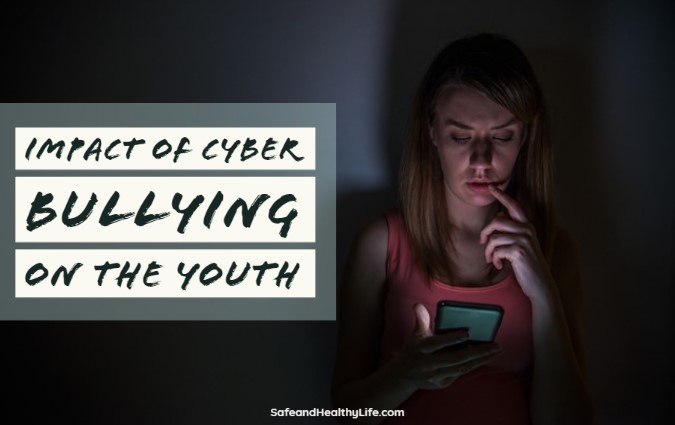
Cyberbullying or cyberharassment is the use of the internet and electronic means to intimidate, threaten, embarrass, or unfairly target someone.
Cyberbullying can take several forms, such as Internet trolling that often takes place on social media platforms, done to provoke a reaction from the intended victim or for someone’s own satisfaction and cyberstalking, which involves the use of electronic means to stalk victims.
Bullying of any form is harmful and can inflict significant psychological distress; cyberbullying is no exception.
According to recent studies, adolescents and teens are more affected by cyberbullying than adults.
Adolescents and teens that fall victim to cyber-bullying have been known to show symptoms of depression and irritability. This has led to adverse effects highlighted by this post as follows;
- Bullied teens likely to engage in substance abuse
Studies have revealed that adolescents who have been bullied are twice as likely to use alcohol, marijuana, and cigarettes as teens who have not been bullied.
This is also based on substance use is strongly associated with trauma and co-occurring mental illnesses like depression and anxiety.
- Poor academic performance in school
Loss of self-esteem among adolescents and teens as a result of cyberbullying often leads to reducing class participation and in some cases makes them afraid of school.
- Trigger suicidal thoughts

The effects of cyberbullying can sometimes be fatal. It was discovered in a recent study that 30% of bullying victims have suicidal thoughts and 10 % of victims have attempted to take their own lives.
While bullying alone may not cause suicide, it has been shown to increase feelings of isolation and loneliness in its victims and could significantly contribute to an already stressful situation.
- Bullying can have long term effects on adolescents ability to socialize and build lasting friendships
Victims of cyberbullying often feel humiliated. This often happens when adolescents come to experience the ugly side of cyberspace; that humiliating messages can be spread rapidly at the touch of a button and leave the victim feeling helpless, as the attacks keep coming from multiple sources.
This can eventually make the victim to be ostracized in their peer groups and leave them unable to re-establish those friendships.
- Adverse effect on overall health
The health of the child depreciates. They start getting aches and pains and may develop stomach ulcers. They also develop sleep-related disorders and some get eating disorders.
How can I deal with cyberbullies?

Although bullying has been a problem among the youth for ages, cyberbullying appears to inflict more damage and to have a longer-lasting effect than more conventional face-to-face bullying.
Parents and guardians are expected to take a greater interest in the impact cyberspace have on their children, and to be open and non-judgmental when talking about cyber-bullying.
To protect your child, you can do the following;
- Set rules on how much time is spent and the sites your child are allowed on.
- Tell your child what they are allowed to do on the internet and how far they can go.
- Establish a close relationship so the child can be more comfortable approaching and discussing anything that happens when they are online.
Just to be on the safe side, you can observe your child and investigate further if you observe the following:
- Restless behavior where the child seems anxious or worried.
- Irritable behavior and an increase in the frequency of tantrums.
- The occurrence of somatic pains.
- The child no longer enjoys activities they were once interested in.
- The child wants to harm themselves.
- Increased engagement in risky behavior.
- Introverted behavior such as withdrawal from friends.
- Dropping in school performance.
As for the teens who become victims of cyberbullies, they can adopt the following measures;
- Be open and talk honestly about your experiences with an older person or professional you can trust
- Take up stress management techniques and activities such as exercise, meditation, positive self-talk, muscle relaxation, and breathing exercises.
- Unplug from technology by taking a break from your smartphone, computer, tablet, and video games can open you up to meeting new people.
About The Author:
 Nirdesh Singh has 10 years of experience in the IT sector. He decided to start his own development company in 2012 and founded Zedex Info Pvt Ltd. where he is a director also. He is also co-founder of fashionbuzzer.com a fashion e-commerce portal in India. He has researched various Business ideologies and methodologies which has enhanced his expertise and credibility in this arena. He loves to write and share about technology, startups, and business very often related to his business.
Nirdesh Singh has 10 years of experience in the IT sector. He decided to start his own development company in 2012 and founded Zedex Info Pvt Ltd. where he is a director also. He is also co-founder of fashionbuzzer.com a fashion e-commerce portal in India. He has researched various Business ideologies and methodologies which has enhanced his expertise and credibility in this arena. He loves to write and share about technology, startups, and business very often related to his business.




